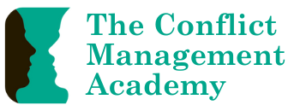This book is all about harnessing the power of intertemporal choice – that is, understanding how the choices we make today will have an impact on the future. Hershfield explores how we tend to think about and relate to our future self / selves, and how various approaches can lead to very different outcomes. He also explores some of the intertemporal choice mistakes we make, such as putting too much emphasis on the present (and particularly the emotions that we are currently feeling), putting too little thought into the future, and translating our current feelings into the future.
This connection between our current and future self is important for very pragmatic reasons (think about saving for retirement, looking after our bodies to promote long term health) and also for psychological wellbeing.
Hershfield suggests three main strategies for smoothing the path between the present and the future – making the future closer (e.g. seeing aged versions of ourselves, writing letters to and from your future self, thinking about days ahead instead of years), staying the course (sticking to our decisions over time, commitment devices) and making the present easier (develop comfort with positive and negative emotions, temptation bundling, break big things into smaller chunks).
The book contains some interesting content about time and time travel, including discussions about how we define the present, and how we think of the near future compared with the distant future
Hershfield explores some common intertemporal choice problems including conflict avoidance, procrastination, overcommitting ourselves in the future, and time and energy management.
This book should sit alongside other complementary books such as James Clear’s “Atomic Habits”, “Immunity to Change” by Robert Kegan and Lisa Laskow-Lahey, and “Farsighted” by Steven Johnson.
It’s particularly useful for coaches working with people who are trying to improve their future, as it provides some useful insights into the challenges in planning for the future, and some strategies to make this process easier and more effective.

